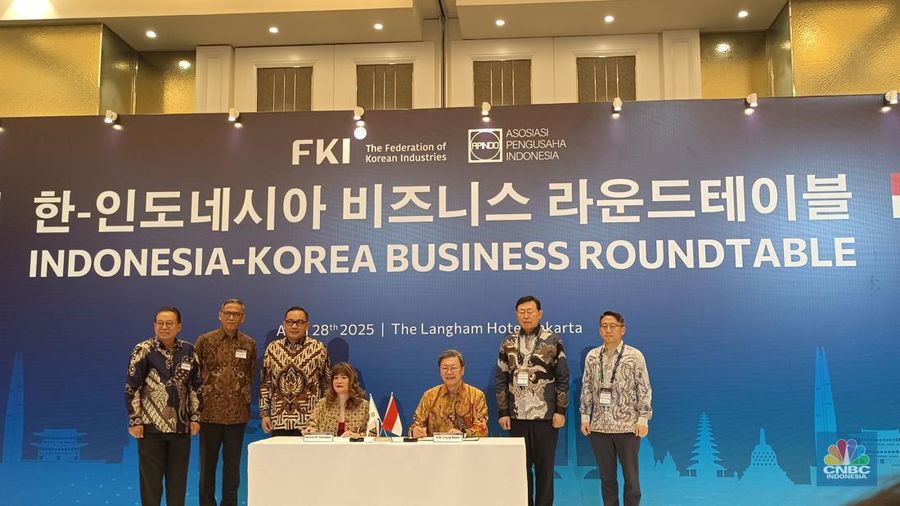Indonesia’s economic landscape is undergoing a major transformation, fueled by a surge in foreign investment. Among the most active contributors is South Korea, whose companies are increasingly betting on Indonesia’s long-term potential. Recently, the chairman of Lotte Group, Shin Dong-bin, highlighted the importance of South Korea investment in Indonesia, particularly in the downstream sector, at a strategic forum held in Jakarta. His remarks reflect a growing trend: South Korean corporations are moving beyond traditional investments into areas that support Indonesia’s national industrialization ambitions.
The Rise of South Korea Investment in Indonesia
South Korea’s economic engagement with Indonesia is not new. For decades, South Korean firms have invested heavily in sectors such as manufacturing, infrastructure, and technology. However, what makes the current wave of South Korea investment in Indonesia notable is the focus on downstream industries like petrochemicals, energy processing, and resource-based manufacturing.
This strategic shift aligns perfectly with the Indonesian government's vision of building a value-added economy. President Joko Widodo has been pushing for “hilirisasi” — downstream processing of natural resources — to ensure that Indonesia no longer exports raw materials without capturing the full economic value.
For South Korean conglomerates like Lotte Group, Indonesia offers an attractive destination to expand their global footprint while supporting the country’s industrial goals. The $4 billion Lotte Chemical Indonesia project in Banten is a clear example of this deepening partnership, aimed at producing essential raw materials for industries ranging from automotive to textiles.
Key Drivers Behind the Surge in Investment
Several factors are driving the significant increase in South Korea investment in Indonesia:
1. Indonesia’s Strategic Economic Policies
Indonesia’s efforts to boost domestic industrialization through policies like the Omnibus Law, investment incentives, and the ban on raw material exports have made the country more appealing to foreign investors. These policies not only create a stable investment environment but also open new business opportunities in value-added sectors.
For South Korean firms, this creates a fertile ground for long-term projects, particularly in areas that align with Indonesia’s downstream priorities. By investing in processing facilities locally, South Korean companies can ensure access to resources while also benefiting from favorable government support.
2. Complementary Economic Strengths
The economic strengths of South Korea and Indonesia are highly complementary. South Korea brings advanced technology, engineering expertise, and global business networks. Meanwhile, Indonesia offers abundant natural resources, a large domestic market, and a strategic location in Southeast Asia.
This synergy has paved the way for mutually beneficial partnerships, as seen with Lotte Group’s expansion and the growing presence of other South Korean giants in Indonesia’s industrial sectors.
3. Rising Regional Importance of Southeast Asia
As global supply chains diversify away from China, Southeast Asia has emerged as an alternative hub for manufacturing and investment. Indonesia, as the largest economy in the region, is naturally a top choice.
South Korean investors recognize Indonesia’s pivotal role in the future of Asia’s economic development. The continued increase in South Korea investment in Indonesia is not just about short-term gains but about securing strategic positions in the regional and global markets.
Future Outlook: What Lies Ahead?
The prospects for South Korea investment in Indonesia look bright. Both countries have committed to strengthening economic cooperation through agreements like the Indonesia-Korea Comprehensive Economic Partnership Agreement (IK-CEPA), which aims to boost trade, investment, and technological exchange.
In the coming years, we can expect to see even more diversified investments from South Korea, especially in areas such as:
- Renewable energy projects, including solar and wind farms.
- Electric vehicle (EV) supply chains, including battery manufacturing.
- Digital economy initiatives like smart cities and fintech solutions.
- Healthcare and biotechnology sectors, leveraging South Korea’s global leadership.
Such investments will not only boost Indonesia’s industrial capabilities but also create thousands of jobs, enhance technology transfer, and raise the country’s global economic profile.
Collaboration Beyond Business
The growing South Korea investment in Indonesia is also fostering stronger cultural and educational ties between the two nations. More Korean companies are setting up corporate social responsibility (CSR) programs focused on education, technology training, and community development.
At the same time, Indonesia is seeing a rise in Korean cultural influence, from K-pop to cuisine, creating an environment of greater mutual understanding and friendship. This softer aspect of economic collaboration is crucial in building a long-lasting, sustainable partnership that goes beyond pure business interests.
Conclusion
South Korea’s increasing commitment to investing in Indonesia is a testament to the country’s bright economic future. By aligning with Indonesia’s downstream industrialization strategy, South Korean companies are positioning themselves for long-term success while contributing to Indonesia’s national goals.
The deepening ties between the two countries promise mutual benefits: Indonesia gains critical investments, technology, and jobs, while South Korea secures access to vital resources and new markets. As the world shifts toward a more multipolar economy, South Korea investment in Indonesia will undoubtedly play a crucial role in shaping the next chapter of economic growth in Southeast Asia.
Indonesia’s future is digital, industrial, and sustainable — and South Korean investors are eager to be part of this exciting journey.
Read More






 Friday, 27-02-26
Friday, 27-02-26







